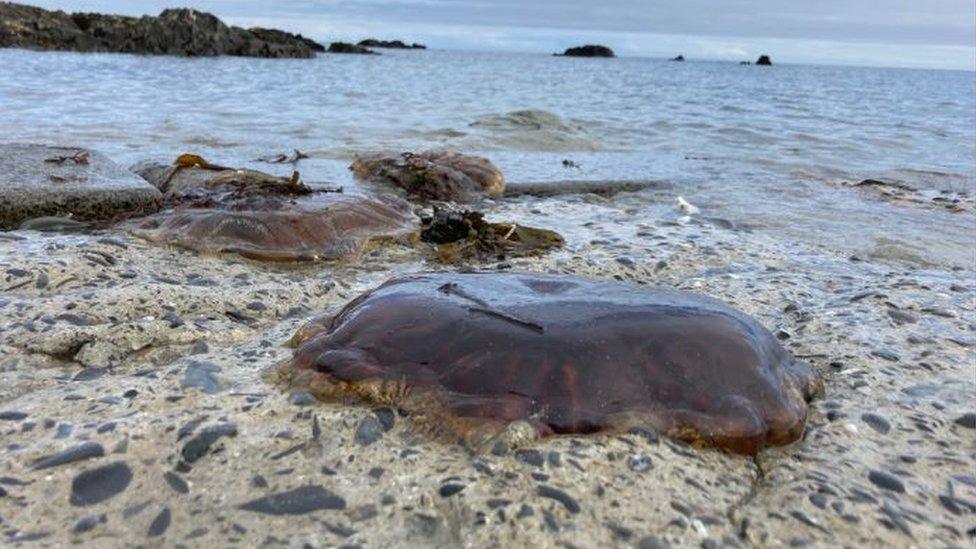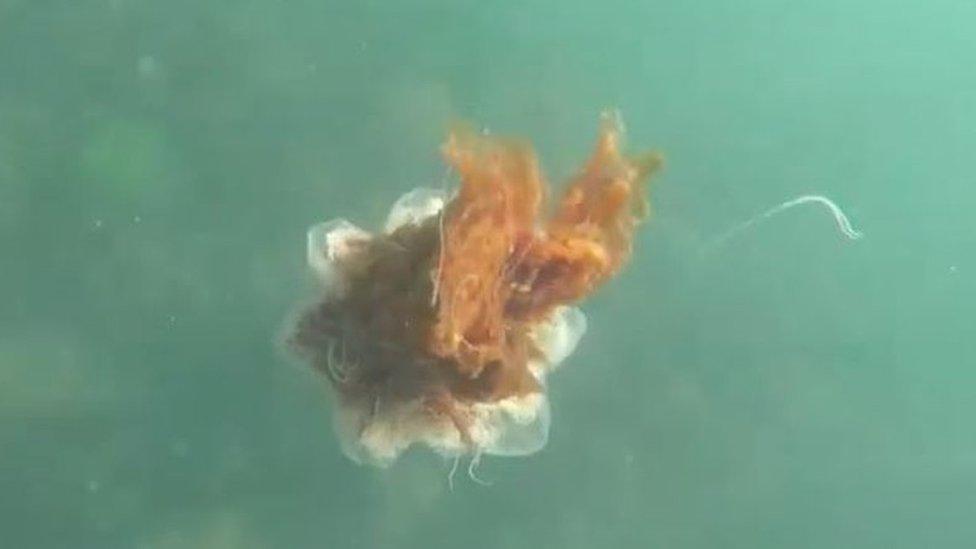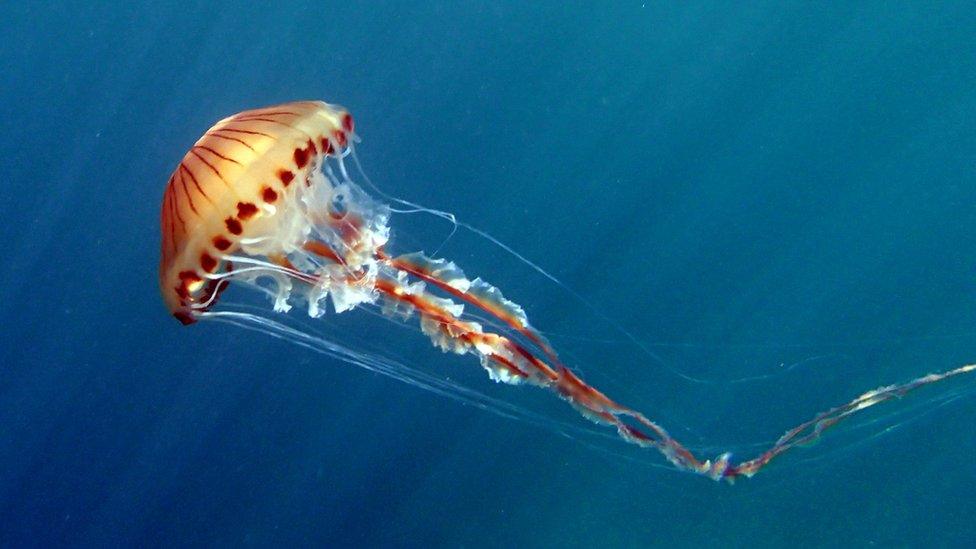NI jellyfish warning as Lion's manes wash up on Cloughey coastline
- Published

Hundreds of Lion's mane jellyfish washed up on the beach in Cloughey
Huge numbers of Lion's mane jellyfish have washed up along the County Down coast in Northern Ireland.
Lion's manes are one of the world's largest-known species of jellyfish, with long tentacles that can give a painful sting.
Hundreds of them are lying on the shore near Cloughey on the Ards peninsula.
Tim Mackie, scientific officer with the Department of Agriculture, Environment and Rural Affairs, has advised people not to touch the jellyfish.
People should not attempt to return them to the sea, due to their sting, which can leave a painful rash even after the creatures are dead, he added.
Many people stung experience an itchy feeling similar to a nettle sting, while others may suffer a more serious reaction, with victims describing a sensation similar to an "electric shock".
Portaferry Coastguard has issued a warning to the public about protecting their dogs from the jellyfish stings, saying they could cause an anaphylactic reaction.
Mr Mackie said the so-called "bloom" happened when climactic conditions prompted the jellyfish to reproduce.
An onshore wind meant they then ended up on beaches along the coast.
Allow Facebook content?
This article contains content provided by Facebook. We ask for your permission before anything is loaded, as they may be using cookies and other technologies. You may want to read Meta’s Facebook cookie policy, external and privacy policy, external before accepting. To view this content choose ‘accept and continue’.

Caravan owner Lyndsey Hutchinson said she was alarmed when she came across the jellyfish clumped together on the rocks near Cloughey.
She said she had never seen anything like it during many years holidaying in the area.
"It was alarming," she told BBC News NI.
Distressed dogs
Bangor vet Jane Reilly said she had treated several dogs in her small practice this week for reactions to Lion's mane stings.
Lion's mane are one of the world's largest known species of jellyfish
She said the dogs had been quite distressed, with sore paws and hives, but had not suffered severe reactions.
However, Ms Reilly said she had ended up in hospital after suffering a severe reaction to a Lion's mane jellyfish sting when swimming off Ballyholme beach several years ago.
She suffered less severe stings from the same species when swimming across the North Channel.
Despite their painful sting, Ms Reilly has filmed the jellyfish during recent swims and said she found them "beautiful".
"Their bell can be one metre wide and the tentacles can be up to 30m long - I suspect the severity of the sting might depend on how much of it you are in contact with," she said.
"Once they come in to the coast, they tend to stay for about four weeks."

A Lion's mane jellyfish captured on camera by Jane Reilly during a recent swim
- Published30 July 2016
